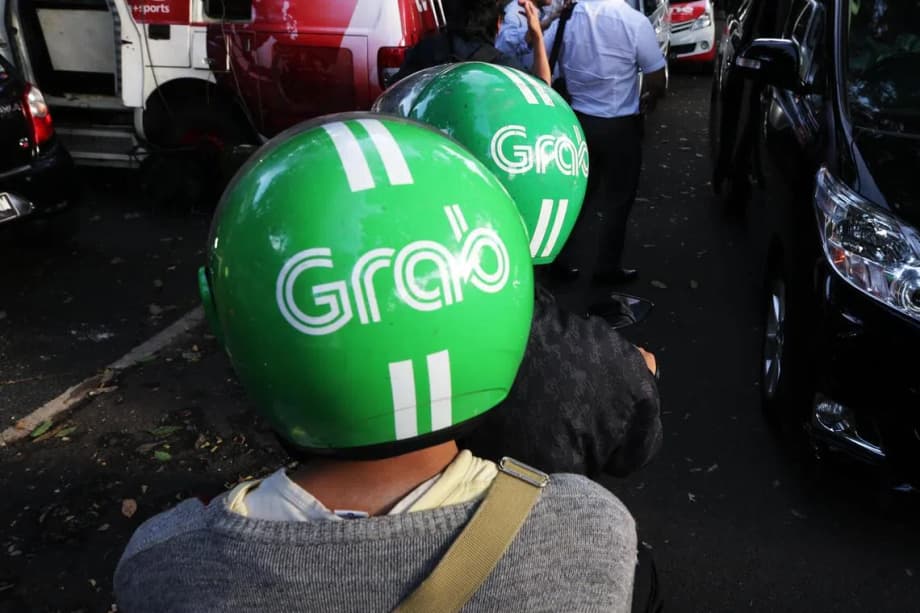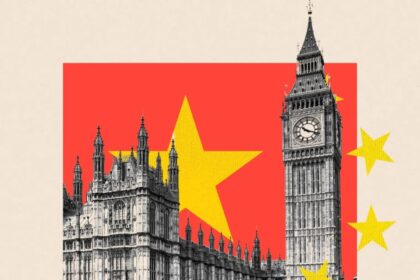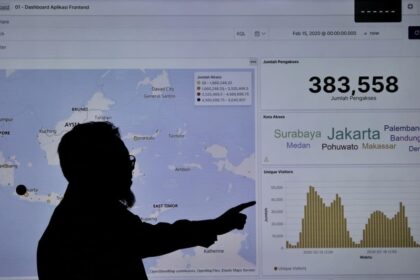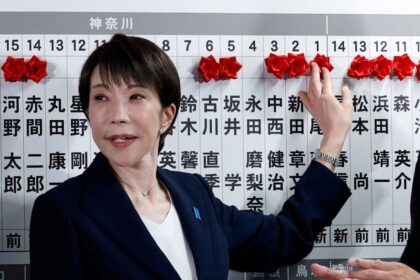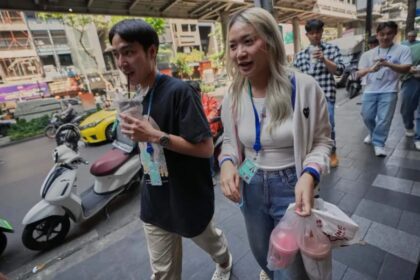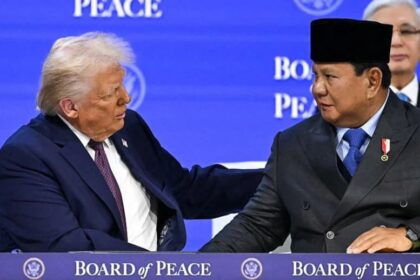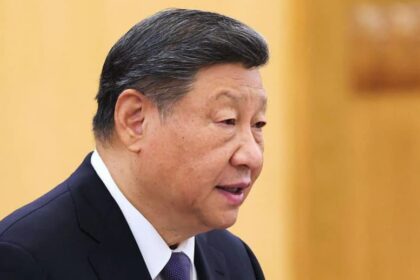A high stakes merger with political roots
Indonesia is moving to shape a possible merger between Grab and GoTo, the two largest app based transport and delivery platforms in Southeast Asia. The effort goes beyond simple business consolidation. It sits at the intersection of street level politics, worker welfare and the future of the country’s digital economy. The stakes are high. Together the platforms control more than nine out of ten rides in Indonesia according to Euromonitor International, and they connect millions of drivers and merchants to consumers every day.
- A high stakes merger with political roots
- Why drivers have become a force in Indonesian politics
- What the administration says it wants
- How new rules could reshape the driver base
- Monopoly risk and the antitrust test
- Danantara’s role, strategic investor or market referee
- The business math behind the talks
- What it could mean for riders, merchants and prices
- National champion or market risk
- What to Know
Officials say the state wants a healthy industry that supports jobs and consumers. Behind that message sits a more urgent calculus. App based drivers have become a powerful and increasingly organized community. Estimates point to roughly seven million people in Indonesia who rely on online transport and delivery platforms for income. Their mobilization during recent protests, combined with a new push to grant active drivers benefits such as health insurance, has pulled the ride hailing sector into core political territory.
That helps explain why senior figures in Jakarta have stepped into talks that had long sputtered between the two companies. Indonesia’s State Secretary Prasetyo Hadi confirmed that discussions about a Grab GoTo deal are under way as part of a wider effort to write a presidential regulation for online motorcycle taxi services. He also said the state investment fund Danantara is involved and that several ministries are participating. Any path forward will have to address antitrust scrutiny, the choices facing millions of drivers and the question of national influence over a platform that would dominate the market.
Why drivers have become a force in Indonesian politics
The summer unrest showed how deeply these platforms are woven into social and political life. In late August, thousands of students, rights groups and citizens rallied against government spending priorities, including benefits for lawmakers. Online transport riders, known as ojol (short for ojek online), were highly visible in the crowds. Tensions spiked after a 21 year old motorbike rider, Affan Kurniawan, was struck by a police tactical vehicle during a demonstration in Jakarta on Aug 28. Rioting followed, spread to 32 of 38 provinces, and left 10 people dead with at least 5,000 arrests. No other workforce in Indonesia can assemble on short notice in so many cities with the same speed as app based riders. Their presence on the streets is no longer a side story. It is a political fact that shapes policy.
Some in government read the moment as a warning. Muhammad Nalar Al Khair, an economist with the Jakarta based think tank Sigmaphi Research, sees a clear motive behind the merger push and regulatory redesign. After describing the August unrest as a turning point, he said the authorities want to shrink risk and tighten oversight.
Mr Muhammad Nalar said: “They are doing it to maintain political and social stability.”
What the administration says it wants
Officially, the presidency frames the policy as an effort to improve welfare and protect a strategic sector. Noudhy Valdryno, deputy head of Indonesia’s presidential communication office, rejected claims that the state aims to reduce driver numbers.
Mr Noudhy Valdryno said: “Our focus is to serve the people, including the partner drivers of GoTo and Grab. Whatever the industry, we want everyone to be treated fairly, receive welfare and the economy grows.”
To give legal shape to that goal, the State Secretary has linked merger talks to a new presidential regulation that would define the future of online motorcycle taxi services. He described the discussions with the companies as part of that drafting process.
State Secretary Prasetyo Hadi told reporters the talks are “part of a government effort to draft a presidential regulation governing online motorcycle taxi services and the future of the sector.”
The government has also floated a larger role for Danantara, the sovereign wealth vehicle. People familiar with the conversations say one option is a golden share that would give the state veto rights over specific strategic decisions even with a small stake. That would embed public oversight inside the corporate structure of any combined company. For supporters, the arrangement would help align a powerful platform with national interests. For critics, it risks blurring the line between referee and player.
How new rules could reshape the driver base
Draft rules under discussion would grant benefits such as health insurance to active drivers. The aim is to improve welfare and set a clearer floor of protection in one of Indonesia’s biggest gig work categories. If the policy defines a threshold for activity, less active drivers could lose access to platform benefits. Over time that would reduce the size of the driver pool. Fewer drivers would make it easier for the state and for any merged company to monitor pay, safety and service quality, but it would also change income options for people who drive part time to fill gaps in earnings.
Supporters of stricter rules argue that a more formal system would reduce disputes about pay and platform rules. Opponents warn that it could squeeze casual workers who rely on occasional orders to keep households afloat. The reality is that platform work has become a pressure valve in Indonesia’s labor market. When factory or office jobs disappear, driving passengers or meals is often the fastest way to earn money the same day. That makes regulation, and any change in market structure, more than a technical exercise. It touches the livelihoods of millions.
Monopoly risk and the antitrust test
GoTo’s Gojek unit says it works with more than 3.1 million riders. Together with Grab, the two have dominated Indonesia for years. Euromonitor International estimates that a combined company would have a market share above 91 percent. Under Indonesia’s Law No. 5/1999 on the prohibition of monopoly practices and unfair business competition, KPPU, the national competition regulator, can investigate mergers that may substantially lessen competition. KPPU has signaled caution and begun internal study work. In platform markets, where price, driver supply and wait times shift minute by minute, the agency will likely weigh how to keep pressure on the combined company to keep fees in check and keep improving service.
Labor groups share these concerns. The Indonesian Transport Workers Union, known as SPAI, has opposed a Grab GoTo merger, warning that consolidation tends to lower driver earnings and reduce bargaining power. SPAI has pushed KPPU to investigate and has called for stronger legal protections for gig workers if the companies move ahead. Those objections carry weight because they cut across politics and economics. A merged company could be more financially stable and invest more in safety and technology, but it could also weaken counterweights that come from head to head rivalry.
Competition authorities have a range of tools if they identify harm. Structural remedies would be the cleanest, for example requiring divestment of overlapping lines of business. That is unlikely for a platform that functions as one network. Behavioral remedies are more probable. These could include caps on certain fees, non discrimination rules for merchants and drivers, data portability so drivers can move their ratings and performance records to other apps, and interoperability measures that make it easier for new entrants to connect to consumers and drivers. Effective remedies need monitoring and clear penalties when terms are breached.
Danantara’s role, strategic investor or market referee
Danantara is exploring a minority stake in the combined company. One version under discussion would grant a golden share with veto rights on decisions seen as strategic, such as major asset sales, changes to national governance or data policy, or moving the headquarters of the Indonesian business. The idea is to retain influence in a platform that touches transport, payments and logistics in the country’s largest cities. It also reflects a wider trend. Governments across the world want both scale in digital markets and safeguards for consumers and workers. Balancing those aims is getting harder as platform power grows.
Economist Nailul Huda has questioned the state’s involvement in a private deal. He argues that the government should not have to back or broker a merger, and that a state stake could distort decisions by discouraging competitors who fear they face a company with public authority behind it.
Mr Nailul Huda said: “Mergers and acquisitions are normal corporate actions, which the government does not have to endorse.”
The debate mirrors a point raised by policy scholars in the region. Combining industrial strategy with competition policy promises influence, but it can also dilute the discipline that comes from rivalrous markets. A minority state stake may keep some profits onshore and give officials a seat at the table. It does not automatically protect consumers from higher prices or drivers from shrinking earnings. Those outcomes depend on the conditions attached to any approval and on steady enforcement.
The business math behind the talks
There is a commercial logic behind the merger push. Grab is US listed on Nasdaq and operates across Southeast Asia. GoTo is listed in Jakarta and was formed by combining Gojek and Tokopedia in 2021. Both platforms want to reach steady profitability across transport, delivery and payments. Combining would cut duplicate costs in marketing, map and dispatch systems, and customer support. It would also shrink the expensive price wars that have defined recent years. People briefed on the talks say one path considered involved Grab raising debt to finance a deal that could value GoTo at several billion dollars. Markets have already responded to the prospect of a tie up by bidding up GoTo’s shares and lifting Grab’s in premarket trading abroad.
Even with cost savings, the merged company would face complex integration work. Two apps have different code bases, data models and operating cultures. GoTo’s integration of Tokopedia was uneven and Tokopedia later moved to a new ownership structure in coordination with TikTok. That history shows how hard it can be to knit different work styles and priorities across large teams. Overlap in back office roles would also trigger the usual pressure to cut staff. On the driver side, companies would need to update incentive formulas and manage real time supply so riders and drivers do not face longer waits.
There is also the question of payments. Both companies run wallets and handle transactions for millions of merchants and consumers. A merged platform could streamline checkout and fraud controls. That could improve the experience for users and reduce losses from scams. Regulators, however, would have to ensure that any consolidation in payments does not lock out smaller financial institutions or make it harder for new wallets to compete.
What it could mean for riders, merchants and prices
For everyday riders, the main concerns are simple. Will prices go up, and will the service stay reliable at busy times or late at night. When two large platforms become one, the immediate risk is less aggressive discounting. Over time, the company might invest more in safety, driver training and better routing. The outcome will depend on the rules KPPU and sector regulators put in place. Clear limits on take rates, transparent surge pricing formulas and dispute resolution channels for drivers and merchants can keep pressure on quality even without a direct competitor at scale.
Many drivers see the platforms as a safety net when wages fall elsewhere. Financial analyst Henry Pranoto captured this reality when he compared Indonesia to a neighbor where driving can bridge a sudden job loss.
Mr Henry Pranoto said: “Social assistance in Indonesia is insufficient, and GoTo is among those that merit government support. It is similar to Singapore, where people who have just lost their jobs often take up taxi driving while they wait to secure a new stable position.”
Protecting that function will be crucial. If a new benefits regime narrows access to the app for less active drivers, policymakers could consider a tiered system that keeps a path open for occasional work, while reserving richer benefits for those who drive consistently. On the merchant side, restaurants and stores depend on delivery apps for a growing share of sales. Any change to commission levels, promotions or visibility inside the app will affect their margins. Rules that require clear disclosure of fees and a fair appeals process can help smaller businesses that lack bargaining power.
National champion or market risk
GoTo was once held up as the signature national tech story. Its shareholder base includes foreign investors, and that mix has fueled debate about economic sovereignty. Supporters of a merger argue that combining with Grab would create a stronger regional player anchored in Indonesia’s largest market. Critics warn that such concentration could weaken domestic rivals and leave consumers with fewer choices. The question for policymakers is not whether to pick a winner. It is how to embed accountability and contestability in a market that tends to tip toward one dominant network.
Two sided platforms link consumers on one side and drivers and merchants on the other. The more users cluster on one app, the stronger the network becomes. That is why ride hailing and delivery markets often converge on a small number of players. When that happens, public oversight matters. A state voice through a golden share can help, but the heavy lifting still comes from clear rules, audits and enforcement that looks at driver pay, wait time, safety incidents and consumer prices on a quarterly basis. Publishing that data would let citizens watch what happens after any deal, and it would build credibility in the process.
What to Know
- Indonesia is steering talks on a possible Grab GoTo merger while drafting a presidential regulation for online motorcycle taxi services.
- Officials link the effort to driver welfare and industry health, after app based riders played a visible role in August protests.
- GoTo’s Gojek says it has more than 3.1 million riders, and a combined company would hold more than 91 percent of the Indonesian market.
- The state fund Danantara is exploring involvement, including a golden share that could give veto rights over certain strategic decisions.
- Competition regulator KPPU has signaled caution and can impose remedies if it sees a risk to consumers or innovation.
- Labor group SPAI opposes the merger, warning of risks to driver earnings and calling for stronger gig worker protections.
- New rules under discussion would grant benefits such as health insurance to active drivers, which could shrink the overall driver pool.
- Analysts say consolidation could cut duplicate costs, but integration will be complex and may lead to staff cuts in overlapping functions.
- Consumer outcomes will hinge on safeguards such as fee caps, data portability for drivers, clear surge pricing rules and fair dispute processes.
- Government messaging stresses welfare and fair treatment. Critics caution that direct state involvement can blur the line between market referee and participant.


